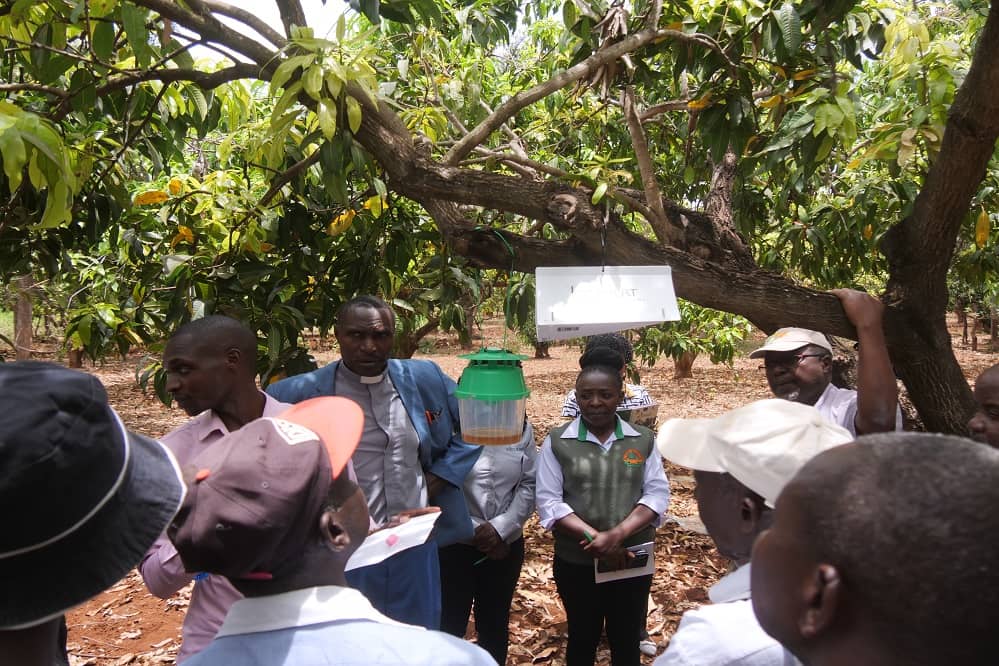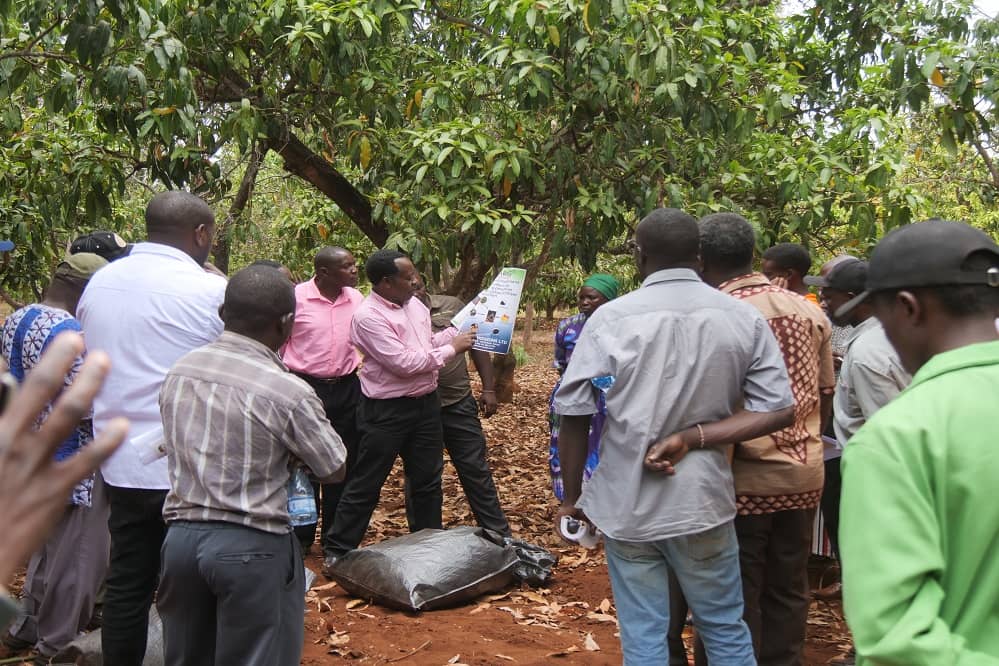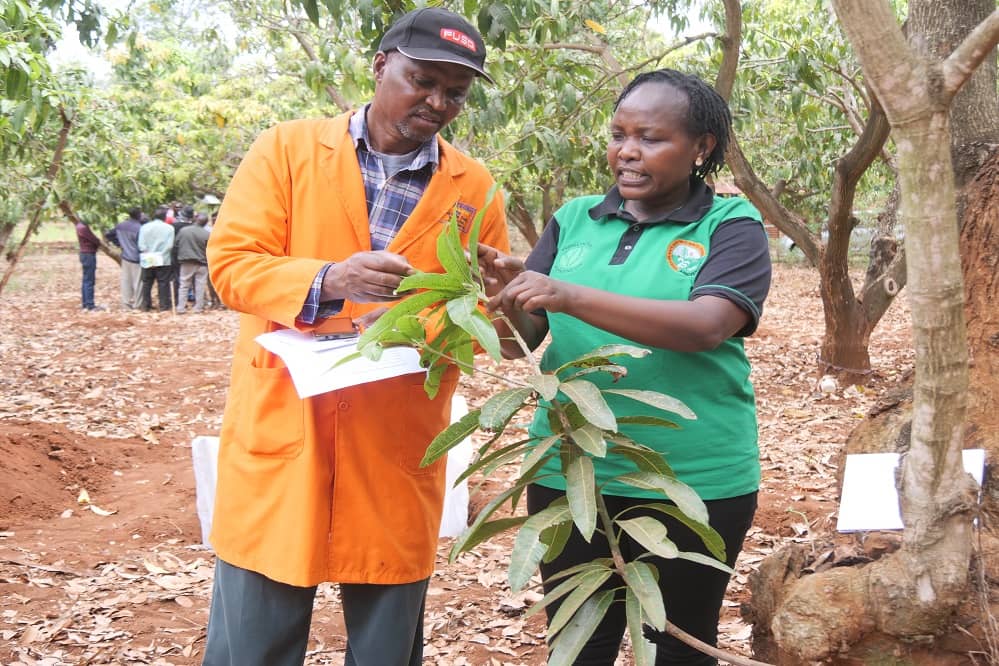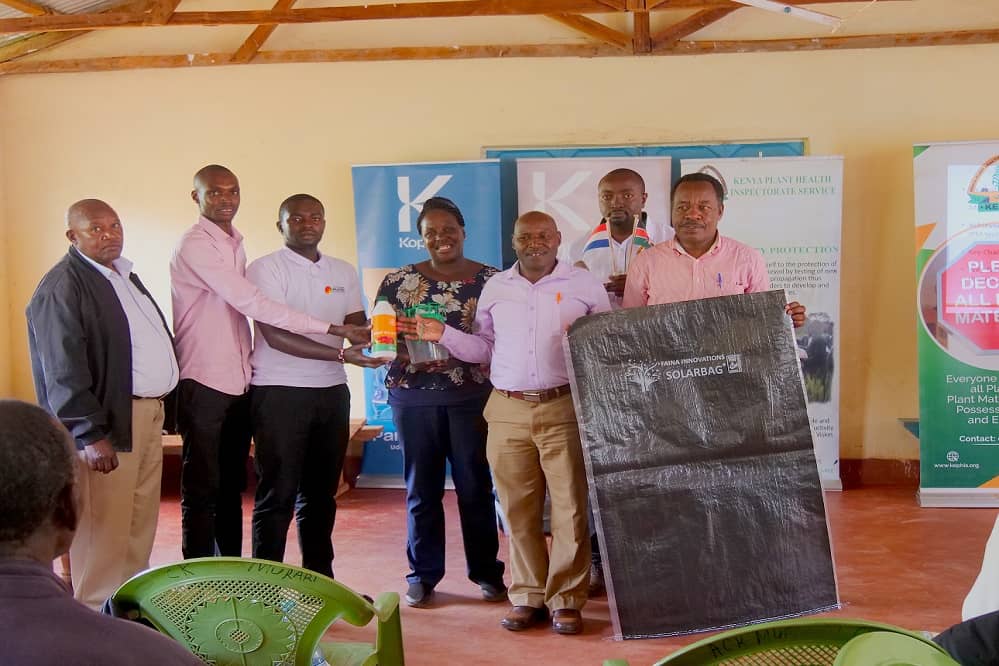Kenya's vital fruit sub-sector faces challenges but holds economic potential. Mango production suffered a 2014 export ban due to fruit flies. Collaborative efforts, including awareness, Integrated Pest Management, and treatment methods, led to successful interventions, lifting the ban. The Netherlands embassy, Kephis, and the Embu County government aim to replicate these strategies, supporting farmers and promoting sustainable practices. Private sector involvement, such as Koppert's eco-friendly pest solutions, is crucial. The initiative targeted 3,000 farmers in Embu, fostering youth involvement along the value chain.

Kenya's fruit sub-sector is vital in the agriculture sector and economy at large. Its tropical climate makes it the perfect place to grow fruits that are popular on both domestic and international markets. Positioning the mango sub-sector for global markets can lead to significant economic growth and increased income for farmers in the region. By equipping farmers with knowledge and techniques to effectively manage pest infestations, they can minimize crop losses and improve the quality of their mangoes. This, in turn, will enhance their competitiveness in the EU and other markets, where stringent quality standards are often required for export. But it is not all sweet returns for many farmers. The subsector faces challenges related to quality control, infrastructure, market access, and threats from pests and diseases.
Mango production is ranked second after bananas and third for export after avocados. In 2014, Kenya self-imposed a ban on the export of its mangoes for fear that the produce would be blacklisted due to high levels of fruit flies, which are quarantine pests in European markets. There are several genus of fruit flies, but the one wreaking havoc in mangoes is Bactrocera Dorsalis. It is destructive to mango crops due to its ability to multiply, it’s a transboundary pest, meaning that it can easily spread on vast lands. The fruit fly causes losses that range from 40 and 80% of the crop. This not only leads to significant financial losses for farmers but also disrupts the supply chain and affects consumers who rely on mangoes as a source of income or nutrition. Efforts are being made to develop effective pest management strategies and quarantine measures to mitigate the impact of these fruit flies in the industry.
The self-imposed ban meant that stakeholders had to urgently seek solutions to address this challenge. A multistakeholder approach was deployed that included national and county governments, research institutions, farmer organizations, regulators, development partners among other stakeholders, and in 2021, the fruit fly management strategies bore fruit, and the export ban lifted. The interventions involved raising awareness among farmers on the negative impact of fruit fly on both production and trade of mangoes, Introduction of Integrated Pest Management (IPM) technologies for fruit flies and other pests, introduction of vapor heat treatment for fresh mango fruits for export, and creation of pest free areas (PFA) and areas of low pest prevalence (ALPP) that are strictly for production of mangoes for export to major markets. This was piloted in Makueni county which is the largest producer of mangoes. Implementation of these technologies and treatments has greatly improved the quality and safety of mangoes for export, ensuring compliance with international standards.
It on this backdrop, that the embassy of the kingdom of the Netherlands, in collaboration with Kenya Plant Health Inspectorate Services (Kephis) and the county government of Embu under the Kenya Netherlands agriculture working group, are embarking on a journey to replicate these interventions aimed at supporting farmers from Embu to address these challenges. The aim is to provide farmers in Embu with the necessary tools, knowledge, and resources to overcome these challenges and improve their agricultural practices. Through this collaboration, the two governments hope to promote sustainable farming methods, increase incomes, enhance food security in the region and increase export of mangoes to EU markets.
Through this collaboration, farmers from Kangari South Ward and Kieni south Ward in Embu County were trained on identification and Management of mango fruit fly and other pests, creation of pest free areas, opportunities along the value chain for the youth, and requirements for certification of fresh mango fruits for export to European Union countries.
According to Charles Wanjau - Horticultural Crop Officer; County Director’s of Agriculture Office- Embu county, “these interventions and collaborative approaches are the solution in collectively supporting our farmers. We will create two pest free areas in these two wards, targeting 3,000 farmers. This will then be followed up by a scaling up programme across the county, based on the outcomes.”
To make this possible, private sector players are key in commercializing IPM solutions. Charles Macharia- Managing Director- Koppert Kenya Limited, introduced Koppert to the farmers, highlighting the need to reduce the use of harmful chemicals, that may also contribute to rejection of fruit during export and also for the health of consumers. “Our pest management solutions are friendly for both the environment and consumers, we use naturally occurring solutions like baits and biopesticides to control these pests.”
Catherine Ndwiga - Mango Farmer, Kieni South Ward owns a mango orchard that sits on 15acres. She noted the drop in her yields due to the fruit fly that has been a challenge “I used to harvest a lot of fruit, but over the years, this has dropped due to the fruit fly. The training that we have undertaken today, is a game changer for me and my neighboring farmers. Kephis has trained us on the importance of ensuring that we reduce the population of the fruit fly. I now understand that I cannot do this alone. The fruit fly is able to travel distances of up to 10 kilometers. This means that we must work together as farmers to ensure that everyone adopts the interventions that we have been trained on, otherwise we will fail and continue to incur more losses.”
The training also provided an opportunity for the youth to identify areas they can plug in along the value chain. Justine Mugendi a youth farmer from Kangari, runs a farm with 300 mango trees. He highlighted on the challenge of access to capital, and how best to involve the youth. “Normally, most farms are owned by our parents, we also have limited capital. Introducing these interventions require concerted efforts to address the pest and disease challenges, this will create an opportunities for the youth to establish service provision enterprises (SPE’s) that can provide spraying, orchard management, and capacity building solutions to the farmers at a fee. As youth, we don’t all have to focus on production, but we can explore other income generating opportunities.”
"We want to assure you of the continued commitment between the Kingdom of the Netherlands and the Kenyan government to improve trade relations. To achieve this, working with stakeholders and having farmers at the heart of the interventions, will be the winning formula in positioning the mango sub-sector. " - Elizabeth Kiamba, Agricultural Advisor (Embassy of the Kingdom of the Netherlands Nairobi)
So far, the breakthrough from these interventions have enabled Kenya to access new markets such as Jordan, UAE and china. About 360MT of vapor heat treated mango fruits were exported this year to Jordan. This was brokered by The Kenya Plant Health Inspectorate services (KEPHIS), whose mandate is to assure the quality of agricultural inputs and produce to prevent adverse impacts on the economy, the environment, and human health, has made this possible. This is in line with the International Plant Protection Convention (IPPC) an intergovernmental treaty signed by over 180 countries, aimed at protecting the world's plant resources from the spread and introduction of pests, and promoting safe trade.
As stakeholders work towards improving this critical sub-sector. The Kingdom of The Netherlands has been and will continue its commitment towards scaling trade partnership with the Kenyan Government.
For more information about this sector or any other agricultural questions feel free to contact us via nai-lnv@minbuza.nl. For the latest updates on activities, new articles and more follow us on X (Twitter) on @NLAgiKenya and subscribe to our newsletter by sending us an email. In case of any non-agriculture questions for the Netherlands Embassy in Nairobi, see this website for contact information



